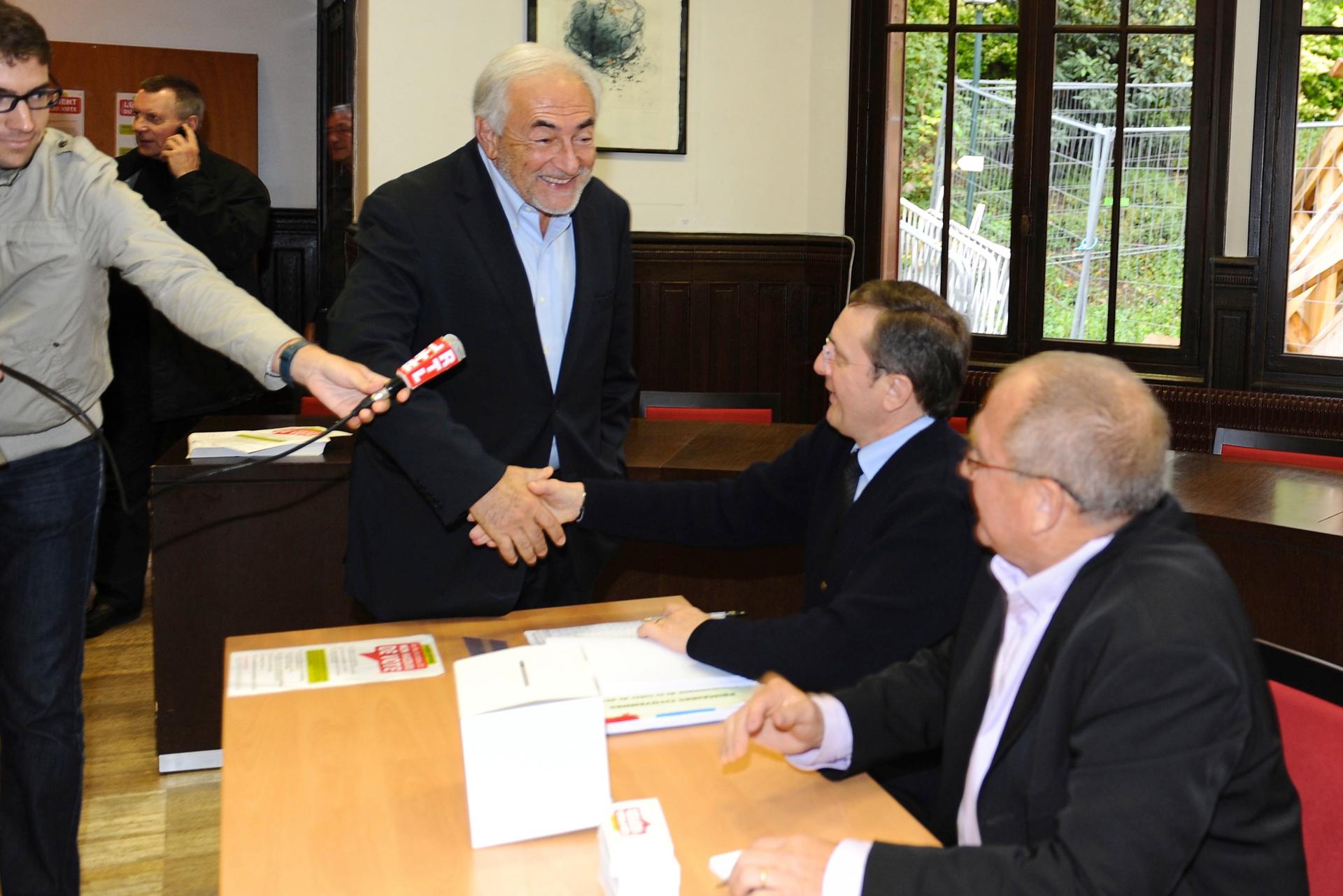French Socialists fail to pick presidential challenger to Nicolas Sarkozy (VIDEO)
Former IMF chief Dominique Strauss-Kahn chats with members of the Socialist party on October 9, 2011 in Sarcelles, a northern suburb of Paris, during the first round of voting to elect a candidate for France’s 2012 presidential election.
The race to pick a challenger to Nicolas Sarkozy in next year's French presidential election will go to a runoff, after former party leader Francois Hollande won only 39 percent and rival Martine Aubry 31 percent in Sunday's first-round vote.
To be declared the winner, a candidate needs 50 percent of the vote.
Opinion polls suggest whoever becomes candidate of the Socialist Party will beat Sarkozy by a comfortable margin, Reuters reports.
Hollande became the new favorite to lead the Socialists after the withdrawal from contention of Dominique Strauss-Kahn.
Strauss-Kahn, the former head of the International Monetary Fund (IMF), was arrested in New York earlier this year on suspicion of trying to rape a hotel maid, a charge later dropped.
One of Hollande's two top rivals for the Socialist party candidacy was Segolene Royal, described by the Vancouver Sun as "his abandoned partner of 30 years and mother of his four children."
The pair, who never married, reportedly considering it "too bourgeois" broke up in 2007 after Royal's failed bid as Socialist party candidate to defeat Sarkozy. (Hollande, the Sun writes, as the party's top official at the time was widely held responsible for the defeat, on the basis of having failed give his ex-partner the political support she needed.
According to the Sun:
There are some rumors that in the competition for the socialist candidacy before that election Royal offered not to run against Hollande if he would give up his new mistress, Paris Match journalist Valerie Trierweiler, who is now being examined as France's potential next first lady.
The story you just read is accessible and free to all because thousands of listeners and readers contribute to our nonprofit newsroom. We go deep to bring you the human-centered international reporting that you know you can trust. To do this work and to do it well, we rely on the support of our listeners. If you appreciated our coverage this year, if there was a story that made you pause or a song that moved you, would you consider making a gift to sustain our work through 2024 and beyond?
